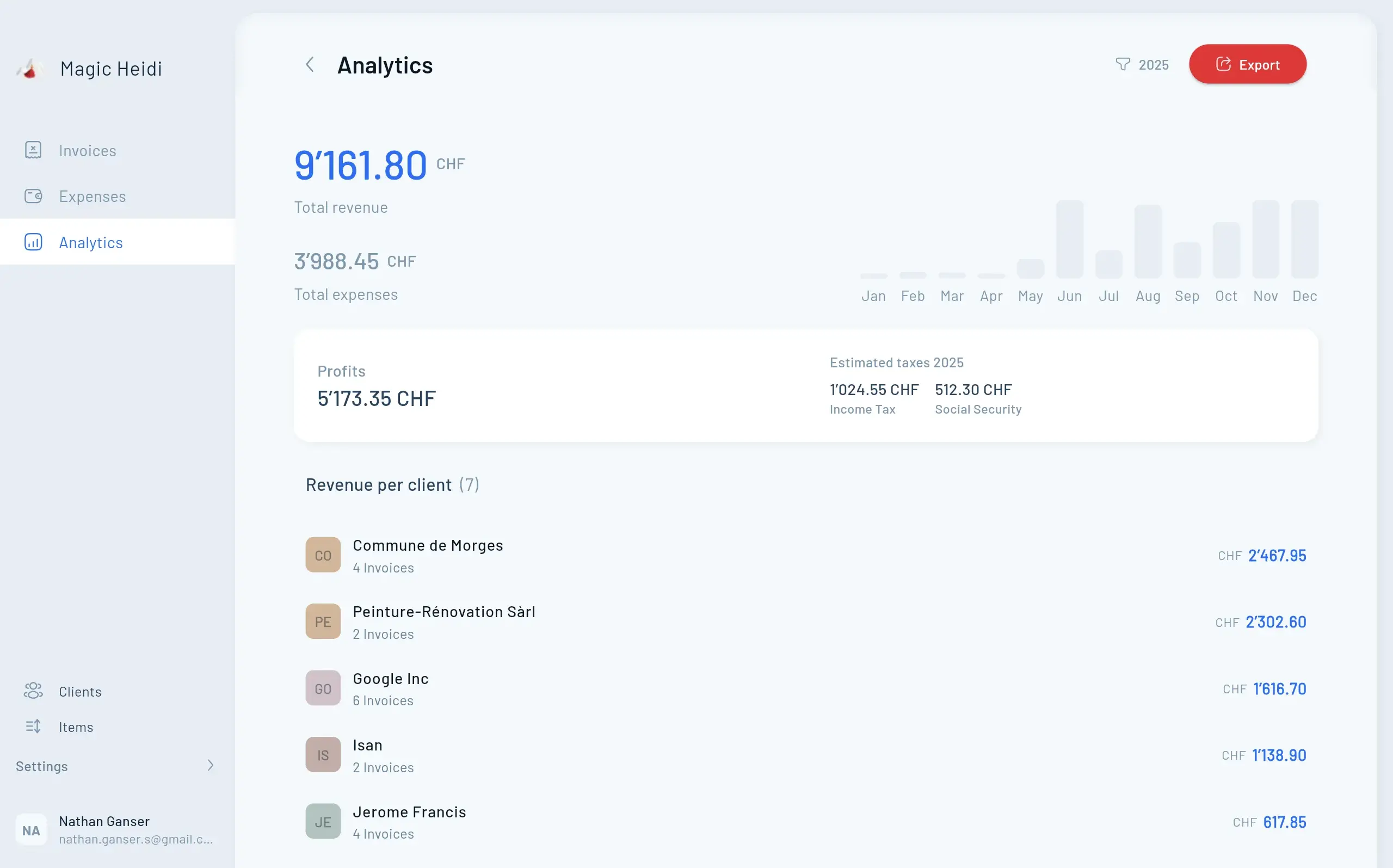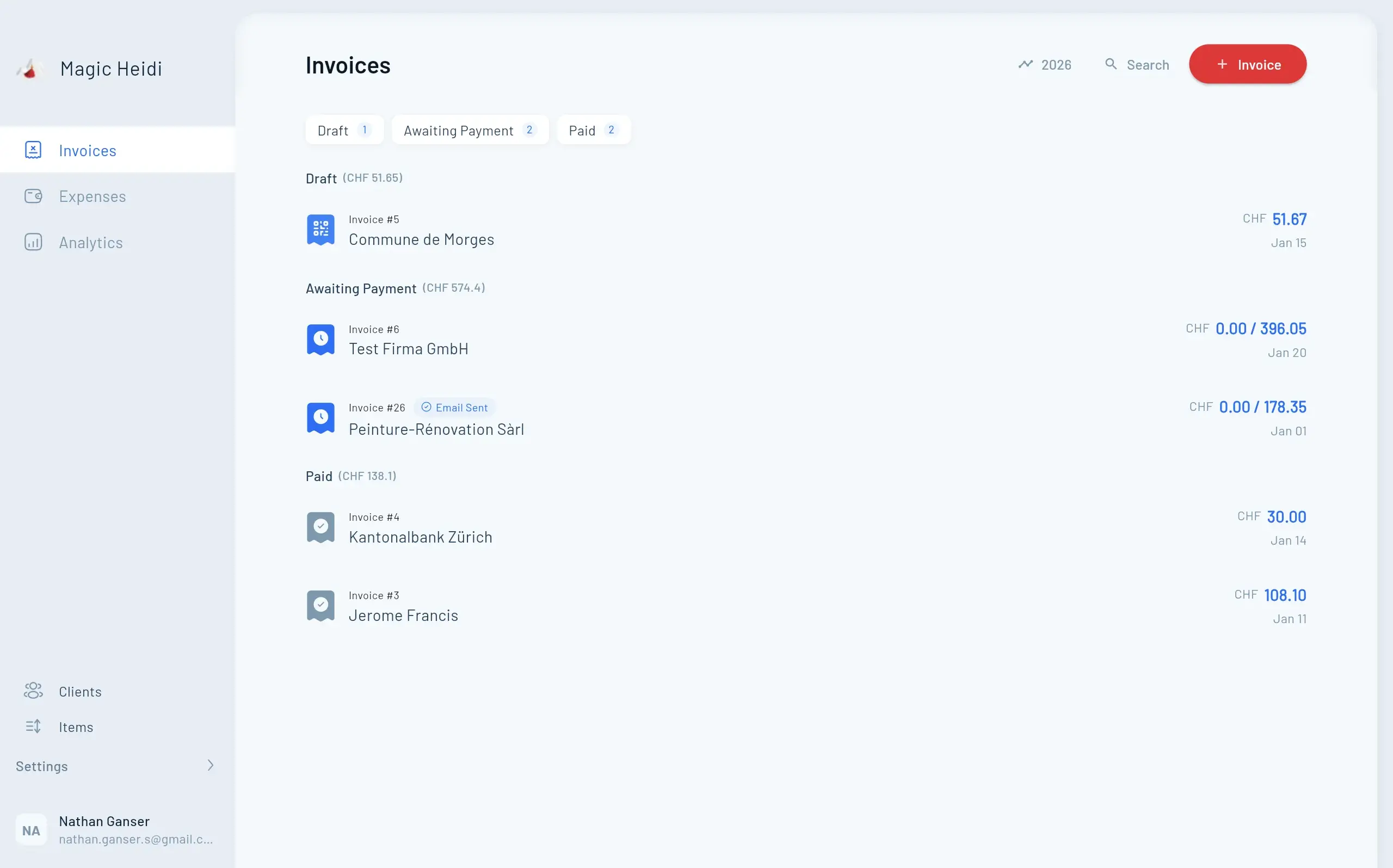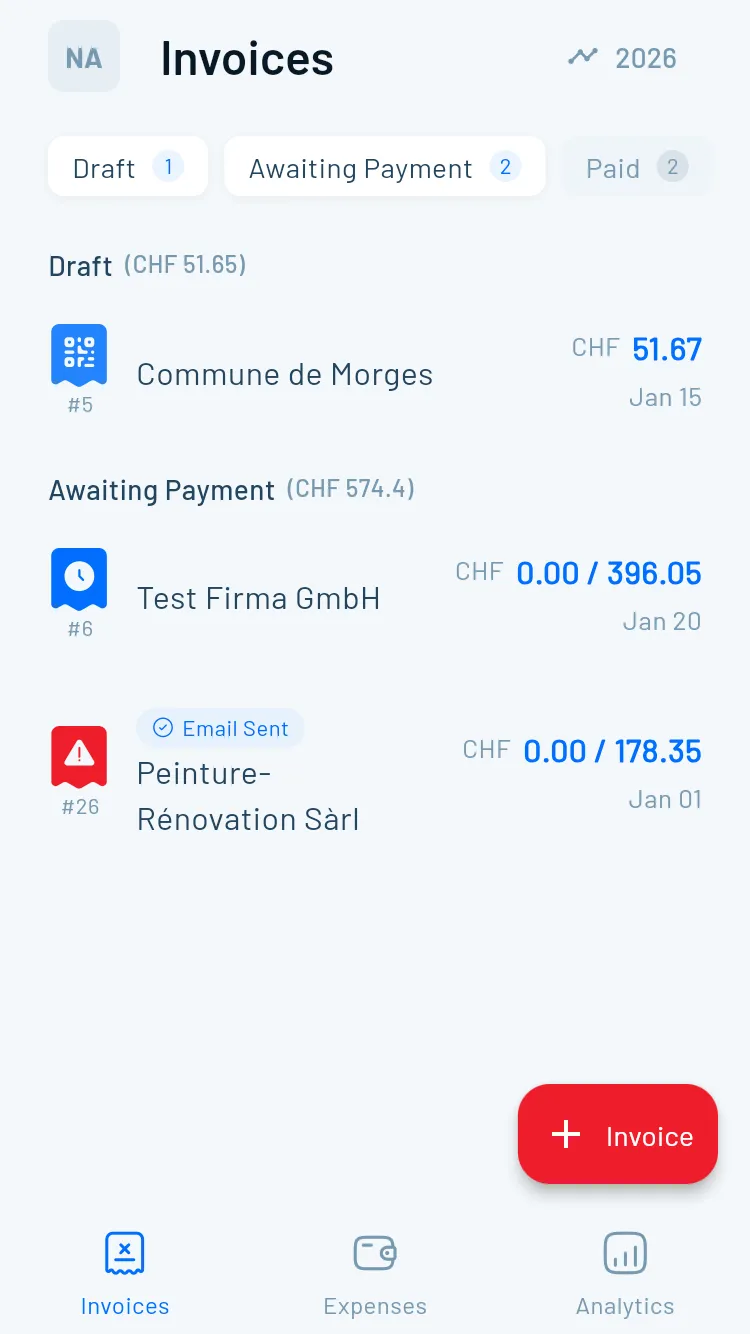UID Number & Business Information
Your UID (Unternehmens-Identifikationsnummer) is Switzerland's unique business identifier. Register through the UID register before starting VAT registration—it's free and takes about 10 business days.
- UID number (register at uid.admin.ch)
- Complete business name and trading name
- Business address in Aargau
- Personal details and bank information



